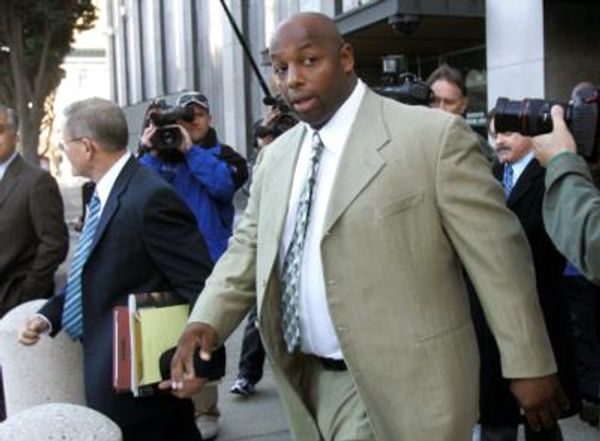
Europe’s military leaders have been aware for some time that high-intensity military conflicts and even major wars are a real possibility for the continent. Europe’s gradual rearmament, accelerated by the war in Ukraine, bears witness to that. It would be unfair to say European leaders are unrealistic about the threats they face. But they have made the mistake of believing that a material response to those threats will suffice.
Armaments are only one aspect of Europe’s problem. NATO already has at its disposal military means that are vastly superior to Russia. But that did not stop Russian President Vladimir Putin from carrying out his aggressive plan against Ukraine, which Europe has clearly declared an important interest in.
That was because he understood the moral and political realities behind the veil of material imbalance. Putin knew that, despite its material strength, Europe was incapable of embracing the possibility of an open conflict. The weapons that Europe has at its disposal cannot become a threat to anyone so long as the continent’s democratic societies won’t demonstrate a capacity and determination to make use of them.
In a 1939 lecture at the dawn of World War II, Raymond Aron, the French political philosopher and sociologist, observed that democracies, despite their wealth and power, only encouraged aggression when they decoupled these dividends of peace from the military virtues totalitarian regimes claimed to have a monopoly on:
When one is speaking to people who profess to despise peace, one must say that, if one loves peace, it is not out of cowardice. It is ridiculous to set regimes founded on work against regimes founded on leisure. It is grotesque to believe that cannons can be resisted with butter, or effort with rest.
In other words, superiority in terms of metrics means close to nothing politically without the moral qualities that make political communities ready to mobilise them through concrete action. Among those moral qualities is a common understanding of the principles — the sense of common good — for which a community is ready to make sacrifices. Such principles can be the object of discussion, but the prospect of war inevitably compels communities to give them substance and meaning — to decide on the boundaries of a singular common good rather than seeking to reconcile disparate values among members of society.
Conditions of peace and stability will always encourage compromise. In a 1952 lecture given to future high civil servants, Aron identified excessive aversion to conflict as a pathological product of modern democratic politics:
The greatest weakness of democracies is to push the spirit of compromise too far. That is, to believe that everything can be solved by a compromise. Every time democracies were confronted to authoritarian regimes, they always thought that the men in charge were sufficiently reasonable to prefer a good compromise to a bad war.
Democracies push the spirit of compromise too far because they tend to consider violence to be the greatest evil. Violence can only be the greatest evil if primary good secured by politics is the preservation of life as such rather than continuing to live in a certain way that defines one’s community — and opposing threats to that way of life posed by one’s enemies.
Yet the dominant understanding of the European Union conceives political action as merely consisting in the application of universal norms and global imperatives. Witnessing the beginning of this Europe, Aron expressed alarm early on about how the new politics of human rights affected the relationship between civic discipline and democracy:
Civic morality puts survival, the security of the community, above everything else. But if Western morality has become the morality of pleasure, of individual happiness, rather than civic virtues, then survival is in doubt. If nothing more remains of the citizen’s duties, if Europeans no longer have the feeling that they must be ready to fight in order to conserve the opportunity to enjoy their pleasures and their happiness, then, indeed, we are both brilliant and decadent.
The European Union suggested an ever-extending process of peaceful discussion, production and exchange was underway, and it made it seem that peace was the inevitable result of greater discussion and more exchange. Europeans ceased to understand that men could pursue incompatible goals or consider violence a legitimate means for securing certain types of interests.
On the contrary, conflict seemed to them the product of accidental causes — as a problem of development or miscommunication that could soon be overcome. Globalisation was European integration writ large. The political and economic successes of Germany, Europe’s most powerful country, have long been premised on this understanding of globalisation. That is one reason why waking Europe from its political hibernation may be especially difficult.
But the problem is indeed deeper than that. By excluding sovereignty from their understanding of politics, Europeans have made war an unthinkable object. But an unthinkable object doesn’t necessarily cease to exist; it manifests as an unpredictable event, an event we cannot imagine to be the result of anyone’s intention. Europeans won’t be in a position to understand war, and even less to counteract it, so long as they keep seeing others as they see themselves.
Weakened materially and morally by two world wars, Europe gradually lost the means and desire to exert its own power. Far from regretting this loss, Europe embraced it in the subsequent decades as a virtue and a sign of progress. It condemned the use of force — which it was itself, of course, no longer capable of — as a vestige of another age, that of nationalism and imperialism.
Europe’s own economic development seemed to prove that military force was pointless and immoral. Europe also drew the conclusion that economic development would also produce similar effects everywhere. It clung to hopes that China, Russia or Turkey would soon join, each at its own pace, the community of liberal and democratic societies as their economies became more integrated into a globalised world.
For decades, Europeans were able to ignore the practical consequences of their peaceful disposition thanks to the protection provided by the United States. For better or worse, what had started under former US president Barack Obama as a mostly rhetorical shift of Washington’s attention to China and the Pacific has become a reality under the policy of his two successors. European governments must now grapple with this new state of affairs.
But how should Europeans be expected to restore confidence in their own capacity for military effort and sacrifice? Again, Aron’s prewar lecture gives us an indication: “The only difference, and it is an important one, is that, in the democracies, one must consent spontaneously to those necessities which are imposed elsewhere.”
Putin may in fact drag his country into war without the explicit support of his population. All he needs for that is an army ready to act on his word. In the case of democratic regimes, the question is not only to have at their disposal the appropriate means of action and a loyal security apparatus but to have citizens recognise the circumstances and stakes that make their use necessary and legitimate.
Yet it is difficult for political communities that condemn from the outset the use of force to identify the circumstances that may require — and the principles that may justify — entering a conflict. In other words, it is difficult for such communities to conduct themselves with prudence and justice. To do so, they would need to interrogate themselves, not only on the rights people share as humans and the interests people pursue as individuals but on the common good that defines the pursuits of the communities formed and that makes citizens capable of discerning and accomplishing their duties. To understand this common good is to understand that it will not always be compatible with other regimes — and that there are more things to moral and political life than can be explained by the rights people all share and the interests people imagine to be mutually beneficial.
That conversation might frighten us because it forces us to formulate and submit to collective principles of conduct when we would rather let people determine their own answers. We may refuse to engage those questions because we fear such a discussion would bring out in the open just how fragmented our societies have become. We may refuse it because it would give us the responsibility to exert the violence we reject. But doing so won’t protect us from danger.
By passively waiting for a crisis serious enough to force us to defend ourselves without prior discussion, we leave to our enemies the opportunity to choose the circumstances that are most favourable to them. Such a war, if it comes, can only prove more costly in human lives and resources than the one we hope to avoid by giving free rein — for the sake of our tranquillity — to aggressive emerging powers.
So, the rearmament of Europe cannot only come from the realisation by decision-makers of the necessity to devote more resources to Europe’s armed forces. It must necessarily arise from an earnest dialogue with ordinary people, of which even the most clearsighted political leaders have abstained until now.
The first responsibility of European elites is now to describe clearly to the citizens of the continent the situation they find themselves in and the responsibilities it entails for every one of them — if they want to preserve the possibility of the free societies they live in. The world cannot complain about this unravelling of the international order and act as if it shouldn’t affect current sets of priorities.
It is inconceivable that, as Europe increases its military budgets, it also keeps promoting, without a hint of doubt, its integration into a globalised economy that has so often provided its adversaries the means of their newfound power. It is irresponsible to consider that the fight against climate change compels people to take measures (regarding energy supply or industrial production, for example) without any consideration of the fact that they place Europe under the dependence of hostile powers. The aggressiveness those powers already demonstrate doesn’t allow people much hope as to the fact that they have any intent of backing down as they grow stronger.
But more deeply than that, such a discussion requires Europe to reform the way it thinks about the ends of democracy itself. The long-term hopes of regimes on the continent depend on people abandoning the self-serving humanitarianism that has led them until now to dissimulate their unwillingness to govern themselves politically. The ever-growing possibility of war should remind the world that collective deliberation gives us a chance to formulate political obligations of our own making. And that the rejection of such obligations for the sake of ever-extending human rights doesn’t free us from the burden of politics but exposes us unknowingly to the risk of becoming the subjects of a foreign and hostile will.
Initiating such a debate, both within and without each country, comes at great personal risks and requires courage from those willing to take up that task. Beyond party politics, it is the duty of those who govern to demonstrate their capacity to carry it out despite the disrepute into which the language of political virtue has fallen. After all, no political platform, however emancipatory, stands in military defeat.







